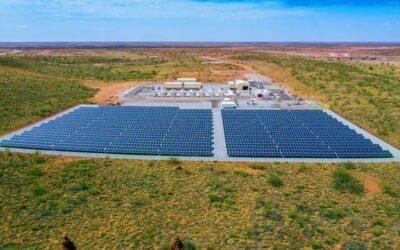
The California Independent System Operator (CAISO) has enacted market rule changes to make it easier for energy storage to provide grid ancillary services and help grid reliability.
The Energy Storage Enhancements proposal was adopted by CAISO’s governing entities last week (16 December) and will be implemented by summer 2023, when extreme heat threatens the stability of the grid.
Enjoy 12 months of exclusive analysis
- Regular insight and analysis of the industry’s biggest developments
- In-depth interviews with the industry’s leading figures
- Annual digital subscription to the PV Tech Power journal
- Discounts on Solar Media’s portfolio of events, in-person and virtual
Primarily, the changes include improved accounting of a battery system’s state of charge to better certify the resources are available as needed, and improved tools for exceptional dispatch to ensure resources are compensated, thereby ensuring their energy is available during peak hours.
CAISO’s storage sector manager Gabe Murtaugh told Energy-Storage.news about the upcoming changes in an interview in April, saying at the time that “…no other market has anything like this in place today and the storage community is really excited to see this change implemented.”
The adopted proposal, which you can read in full here, will make it easier for battery storage systems to provide grid ancillary services, specifically ‘regulation up’ and ‘regulation down’ (the other two CAISO procures are spinning reserve and non-spinning reserve). It will do this by making sure that battery systems’ energy is accurately priced and that the systems are fully charged when needed by the grid.
First, the proposal brings in an enhancement to the equation that governs state of charge to better aligned predicted state of charge with actual state of charge when battery systems are providing regulation up and regulation down.
The second change requires that scheduling co-ordinaters for energy storage resources submit economic energy bids to charge when awarded ‘upward’ ancillary services or economic bids to discharge when providing regulation down.
This will ensure that, should a storage resource deviate from its anticipated state of charge, it will still have the ability to charge or discharge if it is in danger of not meeting requirements for providing ancillary services.
According to the proposal, the changes will only apply to the real-time market, not the day-ahead one after requests from stakeholders. It also includes provisions to make it easier for co-located energy storage resources to charge from the grid, something many contracts do not allow.
Battery storage has grown to become an increasingly important component of the CAISO grid and played a substantial role in averting energy crises amidst extreme heatwaves, notably in September this year and July last year.
As shown below, its operational capacity over 2022 so far has nearly doubled to just under 5GW as of the end of November. With most systems now four-hour duration, that equates to nearly 20GWh online today.
Energy-Storage.news’ publisher Solar Media will host the 5th Energy Storage Summit USA, 28-29 March 2023 in Austin, Texas. Featuring a packed programme of panels, presentations and fireside chats from industry leaders focusing on accelerating the market for energy storage across the country. For more information, go to the website.






